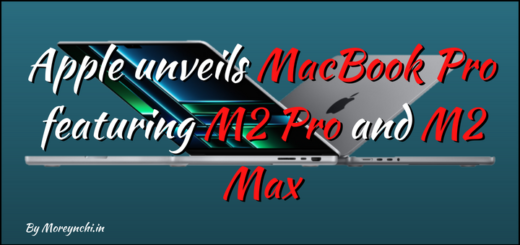Apple’s move from Intel to Apple Silicon
The Announcement
At WWDC 2020, Apple announced it will transition the Mac to its world-class custom silicon to deliver industry-leading performance and powerful new technologies. This is big move by Apple after previous major transition from PowerPC to Intel for the Mac family. Along with this Apple also introduced macOS Big Sur. It’s the next major release of macOS, which delivers its biggest update in more than a decade. Big Sur includes technologies that will ensure a smooth and seamless transition to Apple silicon.
Why this move by Apple
As per many Tech Gurus, Apple’s move to ARM has been prompted by Intel’s slowing performance gains. Recently Mac laptops are criticized for it heating issues. Just take an example of Macbook Air 2020, base model is powered by Intel Core i3 10th Gen processor. It runs hotter and louder than the previous generation did. This is because the cooling system isn’t sufficient to deal with the faster processors in the new model. Multiple YouTube reviewers conducted tests which shows that it frequently hit 100 degree Celsius even with multiple Chrome tabs and 4K video playback.
What Apple Silicon will Offer
With Apple Silicon, Apple is taking total control of its Hardware. With full control of it’s Hardware and Software, we can expect magic performance from the next generation Macs. As per the demo during WWDC 2020, iOS and iPad apps will run out-of-the-box on Macs powered by Apple Silicon.
Transition – Intel to Apple Silicon
To help developers get started with Apple silicon, Apple is also launching the Universal App Quick Start Program. It provides access to documentation, forums support, beta versions of macOS Big Sur and Xcode 12 and the limited use of a Developer Transition Kit (DTK), a Mac development system based on Apple’s A12Z Bionic System on a Chip (SoC).
Mac with Apple Silicon
Apple plans to ship the first Mac with Apple silicon by the end of the year and complete the transition in about two years. Apple will continue to support and release new versions of macOS for Intel-based Macs for years to come. Also Apple has exciting new Intel-based Macs in development. The transition to Apple silicon represents the biggest leap ever for the Mac.
Source – Apple Newsroom



